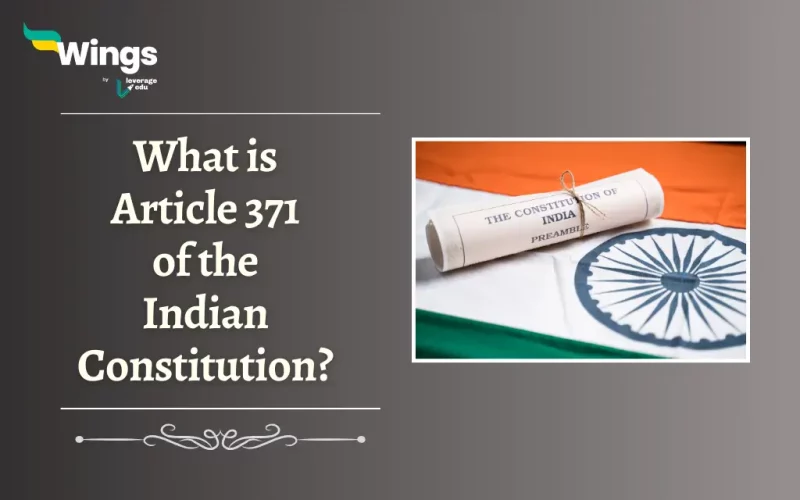Article 371 is an important provision in the Indian Constitution that falls under Part XXI – Temporary, Transitional and Special Provisions. Moreover, Article 371 does not apply uniformly across India but rather grants special powers and autonomy to specific States of the country. Furthermore, the core function of Article 371 is to protect the unique cultural heritage, rights, and interests of certain communities within these particular States. Read on to learn more about all that entails in Article 371 of the Indian Constitution.
11 States under Article 371 of Indian Constitution
In addition, the particular States in question are as follows:
| 11 States under Article 371 of Indian Constitution | |
| Article | State |
| Article 371 | Maharastra and Gujarat |
| Article 371 A | Nagaland |
| Article 371 B | Assam |
| Article 371 C | Manipur |
| Article 371 D | Andhra Pradesh |
| Article 371 F | Sikkim |
| Article 371 G | Mizoram |
| Article 371 H | Arunachal Pradesh |
| Article 371 I | Goa |
| Article 371 J | Karnataka |
Differences in Article 371
Additionally, Article 371 has sub-articles that mention the specific needs of particular States:
- Article 371A: This provision applies to Nagaland. It restricts the Indian Parliament’s authority to enact laws that impact Naga customary laws, social and religious practices, land ownership, and administration of civil and criminal justice involving these customary laws.
- Article 371B & 371C: These articles grant special powers to the Legislative Assemblies of Assam and Manipur, respectively. Furthermore, they allow the creation of committees within the assemblies, specifically for representatives elected from tribal areas (Assam) and Hill areas (Manipur).
- Articles 371D & 371E: Applicable to Andhra Pradesh and Telangana, these articles empower the President of India to guarantee equitable opportunities and facilities for different regions of the States in matters like public employment and education.
- Other Sub-Articles: There are additional sub-articles under Article 371 that cater to States like Gujarat, Maharashtra, Mizoram, etc., with provisions tailored to their specific requirements.
All in all, Article 371 encourages a spirit of unity in diversity within India. Therefore, it acknowledges the rich cultures and traditions across our nation and empowers certain States to implement measures that preserve their unique heritage.
Related Blogs
Lastly, we hope you liked our blog and gained an understanding of What is Article 371 of Indian Constitution. Moreover, you may even read more blogs and empower yourself with knowledge regarding Civics and Polity!
 One app for all your study abroad needs
One app for all your study abroad needs













